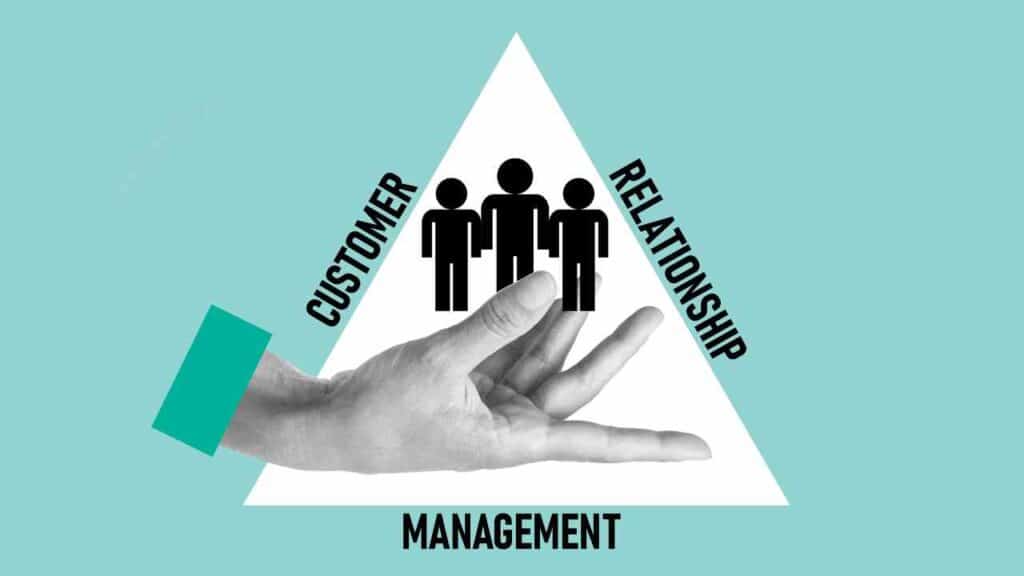Analyzing Impact of Campaigns with CRM

CRM (Customer Relationship Management) systems have become an essential tool for businesses of all sizes. They provide a centralized platform to manage customer data, track interactions, and streamline sales and marketing processes. One of the key benefits of CRM is its ability to analyze the impact of campaigns. In this article, we will explore how CRM can help businesses analyze the effectiveness of their campaigns and make data-driven decisions to improve their marketing strategies.
Understanding CRM and its Role in Campaign Analysis
CRM software allows businesses to store and manage customer data, including contact information, purchase history, and interactions. It provides a holistic view of each customer, enabling businesses to personalize their marketing efforts and deliver targeted campaigns. Additionally, CRM systems offer various analytics and reporting features that help businesses measure the impact of their campaigns.
By integrating CRM with marketing automation tools, businesses can track the entire customer journey, from the first touchpoint to conversion. This integration enables businesses to analyze the effectiveness of their campaigns at each stage of the funnel and identify areas for improvement.
Key Metrics to Analyze Campaign Impact
When analyzing the impact of campaigns with CRM, businesses should focus on key metrics that provide insights into campaign performance. Here are some essential metrics to consider:
- Conversion Rate: This metric measures the percentage of leads or prospects that convert into customers. By tracking the conversion rate, businesses can determine the effectiveness of their campaigns in driving sales.
- Customer Acquisition Cost (CAC): CAC calculates the average cost of acquiring a new customer. By analyzing the CAC, businesses can evaluate the efficiency of their campaigns and optimize their marketing budget.
- Customer Lifetime Value (CLV): CLV represents the total revenue a business can expect from a customer over their lifetime. By comparing the CLV with the CAC, businesses can assess the profitability of their campaigns and make informed decisions about customer acquisition.
- Return on Investment (ROI): ROI measures the profitability of a campaign by comparing the revenue generated to the cost of the campaign. CRM systems can track the revenue generated from each campaign, allowing businesses to calculate the ROI accurately.
- Email Open and Click Rates: These metrics indicate the engagement level of email campaigns. By analyzing open and click rates, businesses can assess the effectiveness of their email marketing efforts and optimize their content and targeting strategies.
Case Study: Analyzing Campaign Impact with CRM
Let’s consider a case study to understand how CRM can help analyze campaign impact. ABC Clothing, an online apparel store, recently launched a new email marketing campaign to promote their summer collection. They used their CRM system to track the performance of the campaign and measure its impact.
Using the CRM’s email tracking feature, ABC Clothing was able to analyze the open and click rates of the campaign. They found that the open rate was 25%, which was lower than their previous campaigns. This insight prompted them to review the subject line and email content to make it more compelling and engaging.
Furthermore, ABC Clothing used the CRM’s conversion tracking feature to measure the number of customers who made a purchase after receiving the email. They discovered that the campaign had a conversion rate of 10%, which was higher than their average conversion rate. This finding indicated that the campaign effectively influenced customers to make a purchase.
By analyzing the impact of the campaign with CRM, ABC Clothing was able to identify areas for improvement and make data-driven decisions to optimize their marketing strategies. They revised their email content and subject line based on the insights gained from the CRM analysis, resulting in a higher open rate and increased conversions.
Benefits of Analyzing Campaign Impact with CRM
There are several benefits to analyzing campaign impact with CRM:
- Data-Driven Decision Making: CRM provides businesses with accurate and real-time data on campaign performance. By analyzing this data, businesses can make informed decisions to optimize their marketing strategies.
- Improved Campaign Effectiveness: By tracking key metrics, businesses can identify areas for improvement and make necessary adjustments to their campaigns. This iterative process leads to more effective marketing efforts and higher conversion rates.
- Optimized Marketing Budget: Analyzing campaign impact with CRM helps businesses evaluate the return on investment of their marketing activities. By identifying high-performing campaigns, businesses can allocate their marketing budget more efficiently.
- Enhanced Customer Engagement: CRM allows businesses to personalize their marketing efforts based on customer data. By analyzing campaign impact, businesses can understand customer preferences and deliver targeted campaigns that resonate with their audience.
CRM plays a crucial role in analyzing the impact of campaigns. By tracking key metrics such as conversion rate, CAC, CLV, ROI, and email engagement, businesses can gain valuable insights into the effectiveness of their marketing efforts. Case studies like ABC Clothing demonstrate how CRM can help identify areas for improvement and optimize marketing strategies. By analyzing campaign impact with CRM, businesses can make data-driven decisions, improve campaign effectiveness, optimize their marketing budget, and enhance customer engagement. To leverage the benefits of CRM for campaign analysis, businesses should consider using a comprehensive CRM platform like SaasExpert.ca – Your All-In-One Sales and Marketing Platform for small businesses, agency owners, and marketers.
Frequently asked questions about Analyzing Impact of Campaigns with CRM.

How do CRM campaigns play a role in building and nurturing customer relationships? 🤝
CRM campaigns are at the heart of successful customer relationship management. They are designed to foster and nurture customer relationships, driving both sales and marketing efforts towards customer loyalty. In today’s digital landscape, customers expect personalized experiences tailored to their preferences and needs. CRM campaigns allow businesses to segment their audience based on various criteria, ensuring that each communication is relevant and impactful. By analyzing customer interactions, purchase history, and feedback, CRM systems can predict future behaviors and preferences.
This predictive analysis enables businesses to create targeted campaigns that resonate with their audience, leading to increased engagement and loyalty. Furthermore, CRM campaigns provide valuable insights into customer behavior, allowing businesses to refine their strategies and optimize their marketing efforts. In essence, CRM campaigns are not just about promoting products or services; they are about understanding customers, building trust, and creating lasting relationships. 📊💡
Why is data management in CRM crucial for better business outcomes? 💼
As businesses become increasingly reliant on technology and data, managing that data has become paramount. CRM systems house a wealth of information, from customer details to sales transactions. Proper data management ensures that this information is accurate, up-to-date, and easily accessible.
Clean and organized data allows businesses to make informed decisions, optimize marketing campaigns, and predict future trends. Moreover, with the rise of data breaches and cyber threats, ensuring data security within CRM systems is essential. Proper data management practices, such as regular backups, encryption, and access controls, minimize risks and protect sensitive customer information. In essence, data management in CRM is not just about storing information; it’s about leveraging that information to drive business growth, enhance customer experiences, and ensure operational efficiency. 📈🔐
How can CRM data analysis improve sales campaigns? 📉
CRM data analysis is a game-changer for sales campaigns. By diving deep into customer data, businesses can uncover patterns, preferences, and pain points. This information is invaluable in crafting sales campaigns that resonate with the target audience. For instance, by analyzing purchase history, businesses can identify upselling or cross-selling opportunities. Similarly, by studying customer interactions, businesses can pinpoint areas of friction in the sales process and address them proactively.
CRM data analysis also allows for segmentation, enabling businesses to tailor their campaigns to specific audience groups. This personalization leads to higher engagement rates and conversions. Furthermore, post-campaign analysis provides insights into what worked and what didn’t, allowing businesses to refine their strategies and improve future campaigns. In essence, CRM data analysis transforms raw data into actionable insights, driving sales campaign success. 🎯📊
How do data-driven B2B sales-growth engines impact commercial growth? 🚀
Data-driven B2B sales-growth engines are revolutionizing the commercial landscape. Companies that leverage data-driven strategies report above-market growth and significant increases in EBITDA. By harnessing the power of data, businesses can make informed decisions, optimize sales strategies, and predict market trends.
For instance, by analyzing customer interactions and feedback, businesses can identify potential bottlenecks in the sales process and address them proactively. Data-driven insights also allow for better resource allocation, ensuring that marketing and sales efforts are directed towards high-potential opportunities.
Furthermore, predictive analytics can forecast future market trends, allowing businesses to stay ahead of the competition and seize new opportunities. In essence, data-driven B2B sales-growth engines transform raw data into a strategic asset, driving commercial growth and success. 📈🌟
How can enrolling in marketing data training courses enhance CRM campaign strategies? 🎓
In today’s data-driven world, understanding how to analyze and leverage data is crucial for CRM campaign success. Enrolling in marketing data training courses equips professionals with the skills and knowledge needed to harness the power of data effectively.
These courses cover a range of topics, from basic data analysis techniques to advanced predictive analytics. By gaining a deeper understanding of data analysis, professionals can craft more effective CRM campaigns, segment their audience more accurately, and predict future market trends. Furthermore, continuous learning ensures that professionals stay updated with the latest tools and techniques, allowing them to adapt to the ever-evolving digital landscape. In essence, marketing data training courses are an investment in professional growth, leading to enhanced CRM campaign strategies and better business outcomes. 📚🔍






